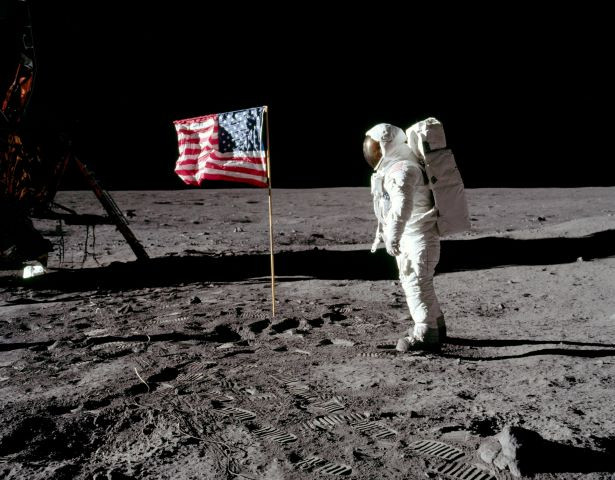
In a rare interview marking the 55th anniversary of the Apollo 11 moon landing, Buzz Aldrin, the last surviving member of the mission, reminisced on his historic journey and shared his visions for the future of space exploration.
Aldrin, now 94 years old, discussed his reflections on the monumental achievement and his current outlook on life.
The interview delved into Aldrin's memories of the harrowing moments during the descent to the lunar surface, where he and Neil Armstrong faced critical decisions with dwindling fuel reserves. "Houston, Tranquility base here," Armstrong radioed after safely landing the lunar module, Eagle, on July 20, 1969, marking humanity's first steps on the moon.
Reflecting on the mission's impact, Aldrin expressed gratitude for the teamwork and innovation that defined their success. "We wanted to be as close to perfect as we could be," he recalled, emphasizing the collaborative effort behind the lunar landing, which captivated an estimated 650 million viewers worldwide.
When asked about his most vivid memory of stepping onto the moon, Aldrin described the lunar surface as "magnificent desolation," a phrase that encapsulated the stark beauty and isolation of their surroundings. Despite technical challenges, including a broken circuit breaker that could have stranded them, Aldrin praised the ingenuity that enabled their safe return.
![]()
Beyond reminiscing about the past, Aldrin spoke passionately about the future of space exploration, advocating for a renewed commitment to exploring Mars and establishing a permanent human presence there. "Mars is the next obvious home for humanity," he asserted, underscoring the importance of continuing to push the boundaries of human exploration.
Aldrin's reflections extended to his personal life as well, highlighting his recent marriage to Anca Faur, a chemical engineer. "I have never been happier," Aldrin shared, expressing gratitude for the joy and companionship he found later in life.
Looking ahead, Aldrin emphasized the need for continued innovation and exploration, urging humanity to embrace new challenges and opportunities in space. "The further we reach outward as a species, the greater the likelihood we will make new discoveries," he stated, emphasizing the enduring spirit of curiosity and discovery that defines human exploration.
As Aldrin gazes at the moon on its 55th anniversary since his historic journey, his thoughts are not just on the past but on the future — a future he believes holds limitless possibilities for exploration, discovery, and the advancement of humankind.
For Aldrin, the legacy of Apollo 11 is not just a memory but a call to action — to dream, explore, and push the boundaries of what is possible in the vast expanse of space.

















COMMENTS
Comments are moderated and generally will be posted if they are on-topic and not abusive.
For more information, please see our Comments FAQ